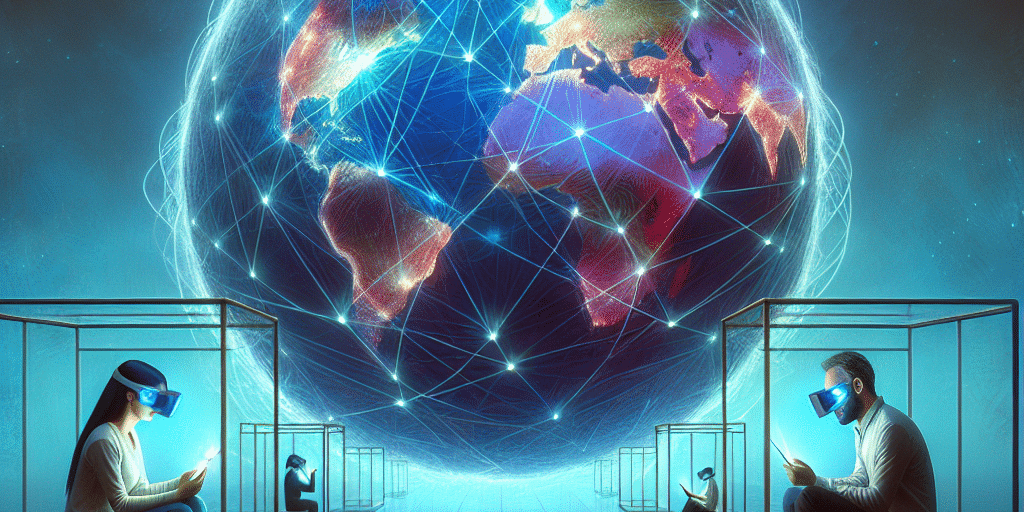The Social Media Paradox: Connectivity vs. Isolation
In the digital age, social media platforms have fundamentally transformed the way we communicate, interact, and perceive our social landscapes. With billions of users worldwide, networks like Facebook, Twitter, Instagram, and TikTok have become integral parts of everyday life. They promise connection and community, enabling friends and family to keep in touch, facilitating new friendships, and offering a platform for self-expression. However, lurking beneath this veneer of connectivity is a growing sense of isolation that has fueled an ongoing debate: Are social media platforms truly bringing us closer together, or are they contributing to a sense of loneliness and disconnection?
The Illusion of Connection
At first glance, social media appears to fulfill its promise of connectivity. With just a click, one can share life’s milestones, join groups with shared interests, or engage in conversations with acquaintances across the globe. Social media allows for the maintenance of relationships that geographic distance might otherwise sever. People can celebrate birthdays with "likes," feel supported through shared experiences, and access a myriad of voices on important social issues.
However, this virtual connection often dilutes the quality of human interaction. Studies suggest that face-to-face communication fosters deeper emotional intimacy and understanding, aspects that text-based exchanges struggle to replicate. The lack of non-verbal cues—tone, facial expressions, and body language—can lead to misunderstandings and a sense of emotional detachment. As users curate their lives for social media consumption, authenticity often takes a backseat. The pressure to project a polished, idealized version of oneself can create a sense of inadequacy and alienation among peers.
A Fragmented Social Landscape
The phenomenon of "social comparison" is amplified on social media platforms, where users are bombarded with images and narratives of success, beauty, and happiness. These curated depictions can lead individuals to feel they are living in a constant state of comparison, endangered by FOMO (fear of missing out) and social anxiety. The paradox here is that while we are connected to a vast audience, we might still feel more alone than ever.
Moreover, social media can lead to the formation of echo chambers, where users engage predominantly with those who share similar beliefs and attitudes. This isolation from diverse perspectives can exacerbate feelings of detachment from broader communities. Instead of fostering understanding and cooperation, this can lead to polarization and conflict.
The Rising Tide of Loneliness
Several studies indicate a correlation between increased social media use and rising levels of loneliness and mental health issues, particularly among younger populations. The Pew Research Center found that nearly 60% of teens feel that social media makes them feel more connected to their friends; however, a significant number also report feeling lonely even with constant online interaction.
The question then arises: Why are we experiencing such heightened feelings of isolation despite—paradoxically—being more "connected" than ever? One hypothesis is that the quality of interactions on social media is inherently different from those in real life. Online engagements can feel fleeting, superficial, or insincere. Meaningful relationships, characterized by mutual support, vulnerability, and shared experiences, are often sacrificed for "likes" and quick comments.
The Way Forward: Intentional Engagement
Recognizing this paradox does not imply that social media is inherently detrimental. Instead, it emphasizes the need for intentional engagement with these platforms. Users have the power to redefine their social media experiences. Strategies for healthier social media use might include:
Curating Your Feed: Following accounts that foster positivity, support, and meaningful engagement can enhance the overall experience.
Setting Boundaries: Limiting screen time and opting for offline interactions can help prioritize real-life connections.
Mindful Consumption: Reflecting on emotional responses triggered by social media can lead to healthier engagement, reducing comparisons and fostering a more positive outlook.
- Encouraging Community: Actively participating in local and online communities that focus on support rather than competition can bridge the gap between connectivity and isolation.
Conclusion
The social media paradox encapsulates the complex interplay between digital connectivity and human isolation. While these platforms provide unprecedented opportunities for interaction, they also pose challenges that can impact mental health and wellbeing. As we navigate this landscape, cultivating awareness about the nuances of our social interactions is crucial. By engaging more mindfully with social media, we can strive to enhance its potential for connection while mitigating its tendencies toward isolation. Ultimately, it is up to us as individuals to determine how we navigate this complex terrain, balancing the benefits of digital engagement with the essential human need for authentic connection.











